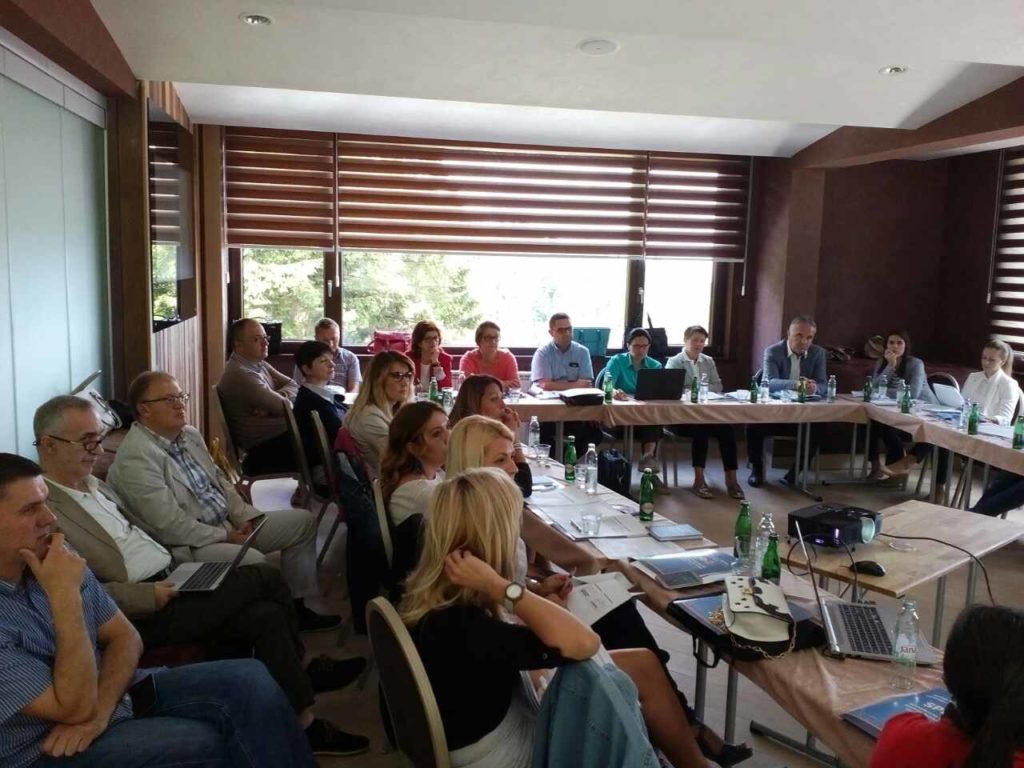
On 17 and 18 July 2017, organised by the project “Capacity Development for Strategic Planning and Policy Development” (known as the SPPD II phase), a third module of the training programme for civil servants was organised and implemented on the topic strategic planning in the institutions of Bosnia and Herzegovina. This training programme caused a significant interest of the beneficiary institutions having in mind that the number of attendees was by one fifth larger in relation to a usual number of 25 attendees. The attending group consists of primarily the officers who were appointed by their institutions to execute the affairs of medium term planning coordination and their immediate associates who execute analytic and planning affairs related with medium term and budget planning in the ministries of the Council of Ministers of Bosnia and Herzegovina.
The training programme processed the matters related with defining strategic and operative objectives and defining implementation indicators of medium term programmes and plans, ensuring a balance between presenting a theoretical framework and exercises on previously prepared practical examples. Initial experiences in providing immediate expert assistance in a work environment on development or improvement of concrete planning documents of beneficiary institutions were also summed up and the participants were invited to be actively involved and use this modality of project support with the objective of development of knowledge and skills needed for the jobs of medium term planning.
In addition to the topics that were previously defined through individual training modules, the attendees were presented also with the initial analysis of the normative framework of planning in the institutions of Bosnia and Herzegovina, prepared by the project team with the objective of understanding the existing legal and methodological framework of planning and identification of possible improvement fields. In that sense, the attending group was consulted on the challenges in a practical application of the established legal, institutional and methodological solutions of medium term and annual planning, and the presented proposals and suggestions would be further discussed with the objective of their possible improvement.
